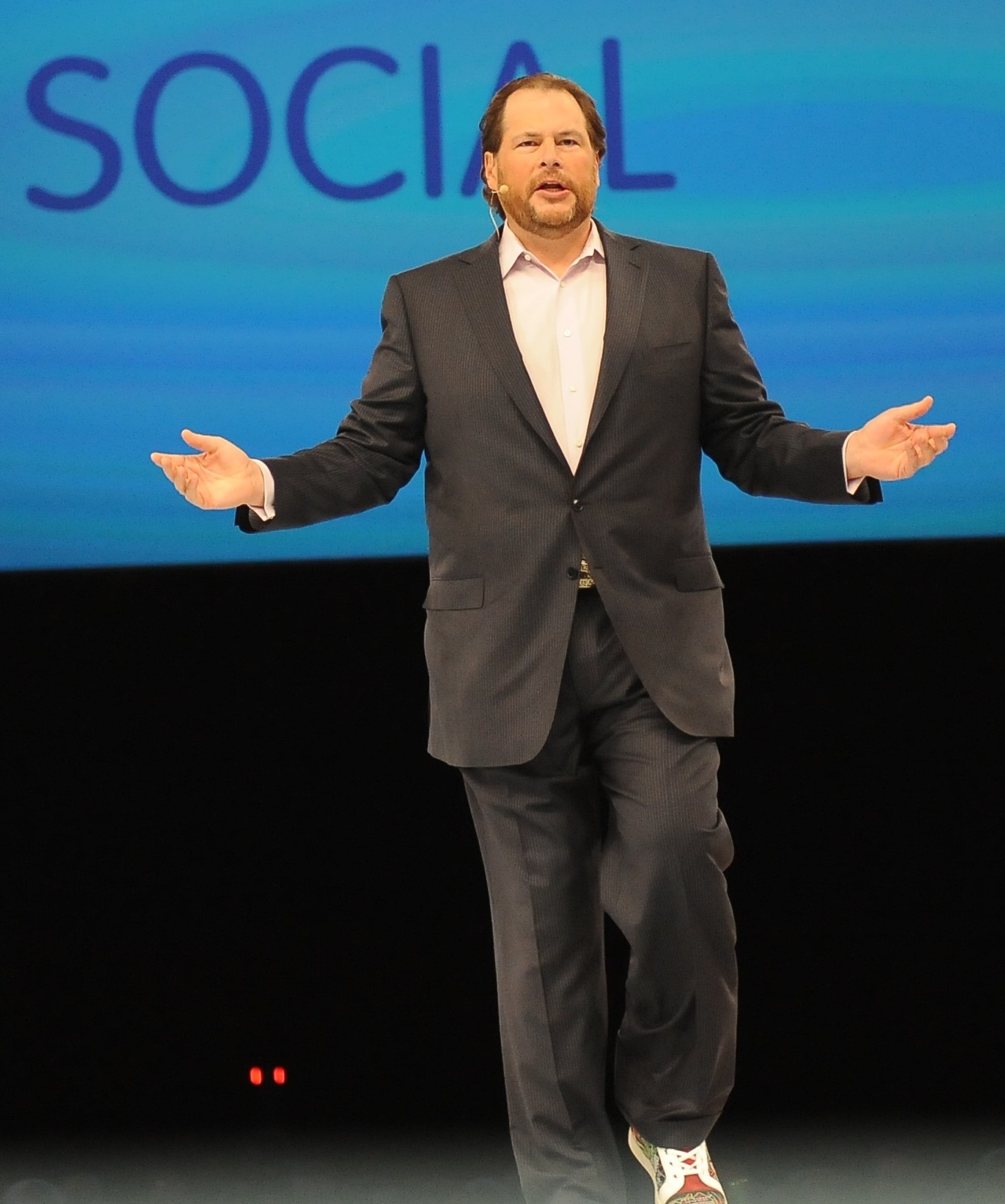

Salesforce chairman Marc Benioff. Image credit: Salesforce
Salesforce has added predictive capabilities and automated chatbots to its Einstein artificial intelligence (AI) platform.
The new features, announced at the Dreamforce 2017 conference in San Francisco this week, are aimed at users rather than programmers, and can be configured with a few clicks, the company said.
They’re included in a new tool called myEinstein, whose setup guide automates the building, training and deployment of AI models based on users’ structured and unstructured Salesforce data.
Once the models and bots are set up, they can be easily integrated into Salesforce workflows without the need for specialised skills, the firm said.
“Salesforce is delivering breakthrough technologies like artificial intelligence to empower Trailblazers to deliver customer success, develop their careers and contribute to society in meaningful ways,” stated Salesforce chief executive Marc Benioff.
Einstein Prediction Builder allows admins to build predictive models based on any custom Salesforce field or object, for instance allowing a user to predict a customer’s likelihood to move to another company or the lifetime value of an account.
Administrators set up the model by defining the prediction they want and identifying the field used to build the model and which data to draw on.
A resulting attrition score, for instance, could then be embedded into the Salesforce customer account page which could then automatically alert sales representatives to high-risk customers, who could then find ways to reduce the risk.
Einstein Bots allows customised service chatbots to be deployed using natural language processing to communicate with customers and deal with routine issues or hand-off to human agents, if necessary.
The bots, which continuously learn from their interactions, can be used to track order status, reset a lost password, initiate a return or other actions, collecting basic information and initiating the relevant workflows, while delivering personalised information to the customer.
myEinstein also includes two APIs launched in June, Einstein Language and Einstein Vision, which developers of all skill levels can build into CRM applications.
Einstein Language for Intent can be used to train a model to classify the underlying intent of a customer inquiry, which can then route leads, escalate service caes or personalise marketing campaigns. Einstein Language for Sentiment classifies the tone of any text in order to gain insight into customer attitudes.
Einstein Vision for Image Classification adds visual search, brand detection and product identification to CRM apps while Object Detection recognises unique objects as well as their location, size and quantity.
Other launches at the conference include the myTrailhead continuous learning platform, myLightning for building customised applications, mySalesforce for building and deploying mobile tools and myIoT, which uses data from internet-connected devices to create rules-based automation for business processes.
Put your knowledge of artificial intelligence (AI) to the test. Try our quiz!
OpenAI chief operating officer Brad Lightcap to oversee international expansion as company consolidates lead in…
Chinese researchers publish details on device that could wreak havoc on undersea communications cables in…
Former Intel chief Gelsinger expands role at Gloo, becoming executive chairman and head of technology…
MEPs add to Commission pressure for second EU Chips Act amidst industry calls for renewed…
Smartphone maker Xiaomi reportedly raises about $5.5bn in Hong Kong share sale as it invests…
BYD's Qin L EV sedan starts at about half the price of Tesla's Model 3,…